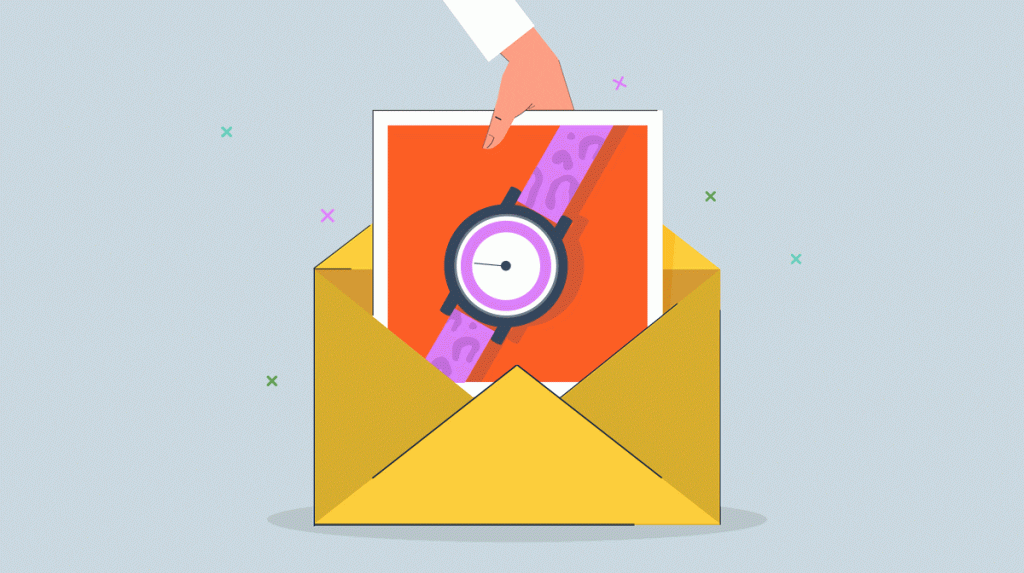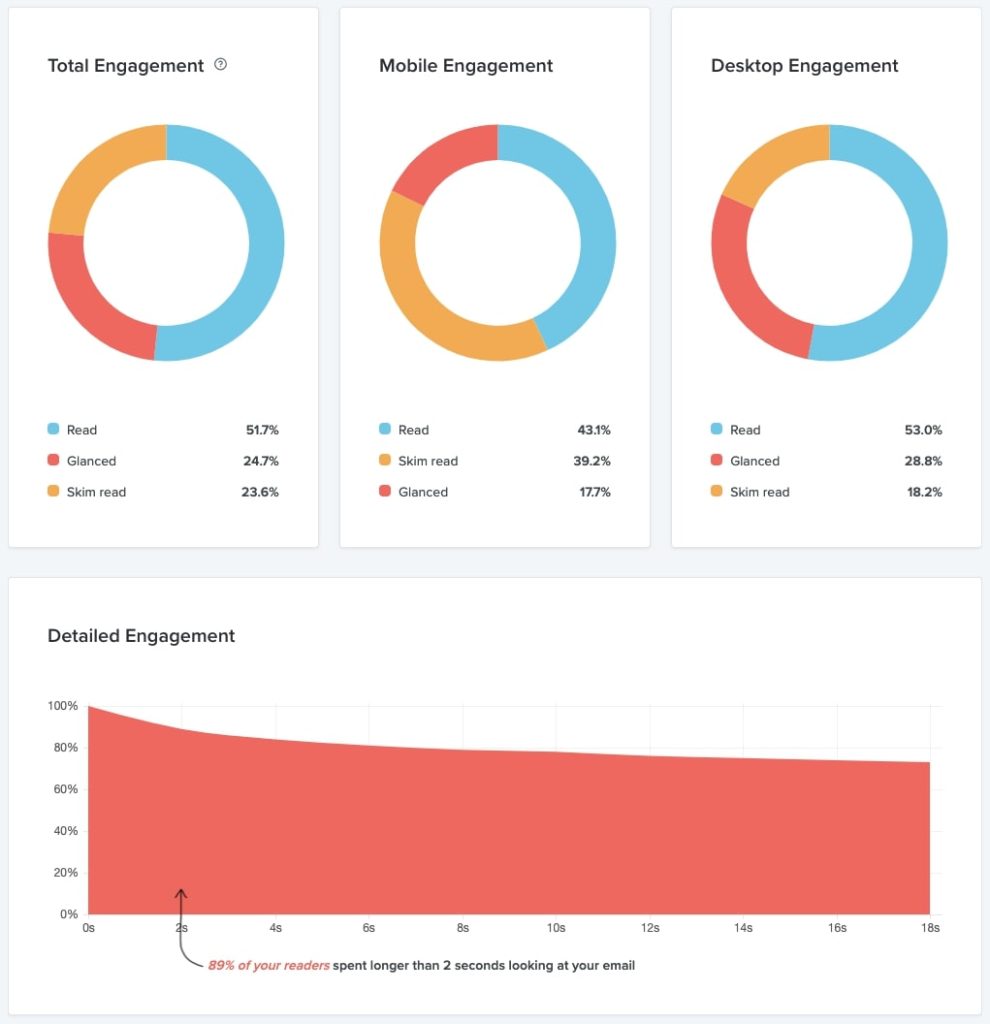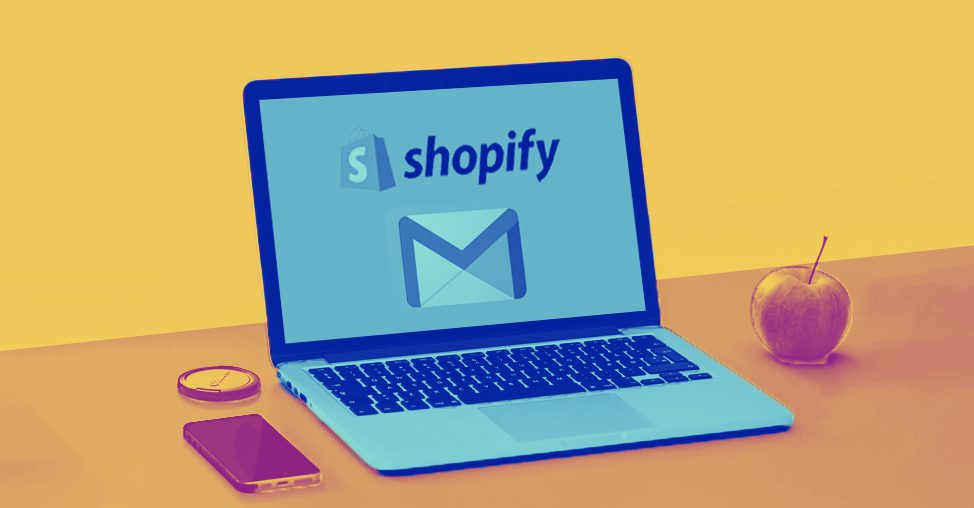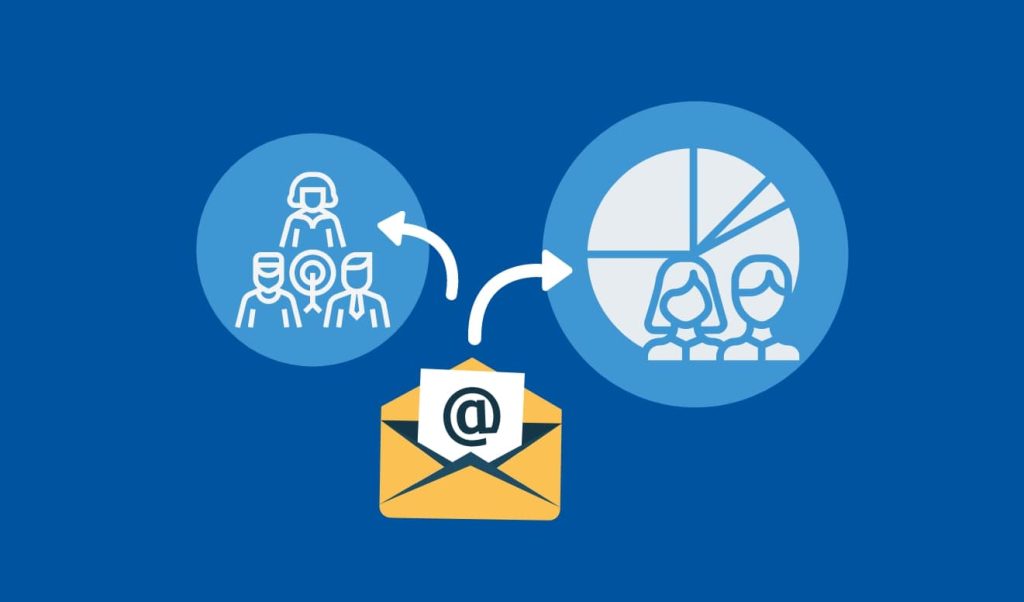5 Email Marketing Strategies for Shopify Stores
Struggling to notch up those sales and keep customers flocking back to your Shopify store? You’re certainly not alone in the fray. The online marketplace is bustling, making it a bit of a challenge to stand out from the crowd.
But fret not one of the most potent arsenals for breaching this hurdle sits snugly within our grasp: email marketing. With an astonishing return on investment clocking in at $42 for every $1 spent, it’s no small wonder that email marketing is hailed as a powerhouse for amping up sales and engagement.
We know the drill all too well – scouring every corner for strategies that don’t just promise but deliver. So, we rolled up our sleeves, delved deep into research, and played around with varied tactics until we hit upon those golden nuggets that make a tangible difference.
What surfaced were invaluable insights: A concoction of targeted emails, savvy marketing automation techniques, customer engagement hacks, and fine-tuning your email campaigns can work wonders for your Shopify empire.
This post unfolds five tried-and-tested email marketing strategies poised to turn subscribers into staunch allies, spike conversion rates, and ultimately swell your business coffers on Shopify.
Brace yourself to give your digital shopfront the facelift it richly deserves!
The Power of Email Marketing for Shopify Stores
Email marketing is a powerful tool for Shopify stores. It helps in building an email list and drives sales while increasing brand awareness and customer loyalty.
Importance of building an email list
We understand the crucial role an email list plays in maximising email marketing for Shopify stores. Creating a robust email list is the first step towards connecting with potential customers and engaging them directly.
Our experience shows that a solid email list opens up opportunities for personalisation, which can significantly improve conversion rates. Through targeted campaigns, we’ve seen firsthand how customised messages based on customer behaviour lead to better engagement.
Building this list also sets the stage for various effective email marketing strategies such as leveraging abandoned cart emails to recover sales or implementing welcome email series that introduce new clients to your brand.
These strategies not only help in driving sales but also in building trust and loyalty among customers. We’ve utilised segmentation of our mailing lists to deliver more relevant content, ensuring our promotions and updates reach those most interested, thus enhancing our Shopify business’s reach and impact effectively.
Benefits of email marketing for Shopify stores
Email marketing for Shopify stores offers significant benefits. Firstly, it contributes to driving sales by reaching out to potential and existing customers with enticing promotions and special offers.
This approach has proven successful in boosting conversion rates for e-commerce businesses. In addition, leveraging email campaigns can effectively increase brand awareness by consistently communicating with a wider audience through strategic content placement and product showcases.
Furthermore, implementing well-crafted emails aimed at customer retention plays a crucial role in solidifying loyalty among your customer base, ultimately nurturing long-term relationships that are essential for sustained business growth.
These strategies coincide with our aim to boost online promotions, enhance email marketing for Shopify businesses, and maximise email strategies for Shopify success.
Types of Marketing Emails for Shopify Stores
Explore a wide variety of marketing emails for Shopify stores and their impact on customer engagement. Find out how different types of emails can influence customer behavior and boost sales.
Promotional emails
Promotional emails are a powerful tool for driving sales and increasing brand awareness. Special offers and promotions delivered through email can help Shopify stores to attract potential customers and encourage repeat purchases from existing clients.
According to our data, sending promotional emails tailored towards the interests of different customer segments can significantly boost engagement and conversion rates, ultimately leading to an increase in sales.
Utilising eye-catching email templates and compelling content alongside strategic email cadence is crucial in maximising the effectiveness of promotional emails for Shopify businesses.
Crafting persuasive promotional emails with personalised content is essential in capturing the attention of recipients and prompting action. Sending targeted promotions based on customer behaviour can enhance the effectiveness of promotional campaigns, ensuring that customers receive relevant offers that cater to their preferences.
Furthermore, A/B testing different elements within promotional emails such as subject lines, call-to-action buttons, or images can provide valuable insights into what resonates best with the audience – an important factor in refining future marketing strategies for Shopify stores.
 Informational emails
Informational emails
Informational emails are vital for providing valuable content to your Shopify store’s subscribers. This type of email focuses on educating and informing recipients rather than promoting products or services.
By delivering insightful content, you can establish your brand as a trusted source of information, thereby enhancing customer loyalty and engagement with your email campaigns.
Remember that crafting engaging informational emails requires understanding the interests and needs of your target audience. With our vast experience in creating effective email marketing strategies for ecommerce brands, we know firsthand just how impactful well-designed informational emails can be in nurturing customer relationships and driving long-term success for Shopify stores.
Retention emails
Retention emails are a crucial component of our email marketing strategy for Shopify stores. These emails are designed to keep existing customers engaged and interested in our brand, ultimately leading to repeat purchases and customer loyalty.
By providing special offers or promotions through retention emails, we can entice customers to return to our online store and make additional purchases, thereby boosting sales and revenue.
 Personalising these emails based on the customer’s purchase history and preferences can significantly improve engagement and conversion rates, creating a more personalised shopping experience for our customers.
Personalising these emails based on the customer’s purchase history and preferences can significantly improve engagement and conversion rates, creating a more personalised shopping experience for our customers.
Implementing an effective retention email strategy involves leveraging post-purchase emails as well. By sending follow-up emails after a customer makes a purchase, we can express gratitude for their support while also encouraging them to consider future purchases with exclusive discounts or product recommendations tailored to their previous buying behaviour.
This personal touch helps strengthen the bond between our brand and the customer, increasing the likelihood of continued patronage.
In addition to these strategies, email segmentation plays a vital role in crafting targeted retention emails that resonate with specific customer groups. By segmenting our mailing list based on various factors such as purchasing frequency, average order value, or product category interests, we can tailor the content of our retention emails towards each group’s preferences and behaviours effectively.
This level of personalisation is key in driving engagement and ensuring that our retention emails are highly relevant to each recipient’s unique interests.
Transactional emails
Transactional emails play a crucial role in the realm of email marketing for Shopify stores. These are not just ordinary messages, but rather bespoke communications that unlock the secrets to successful sales.
Personalised order confirmation and shipping notification emails, amongst others, provide firsthand experience to customers, enhancing their overall shopping experience with our brand.
Utilising transactional emails is not merely about providing information; it’s about boosting engagement and driving repeat purchases. Picture this: by incorporating special offers or product recommendations within these tailored messages, we can effectively increase conversion rates and maximise sales from each customer interaction.
Unveiling the secrets of transactional emails allows us to navigate the complexities of email marketing for Shopify stores while creating a robust strategy designed to enhance both customer satisfaction and business success.
Best Practices for Successful Email Marketing on Shopify
Implement these best practices for successful email marketing on Shopify to truly maximise your potential. To learn more about boosting sales and increasing brand awareness, dive into the full article.
 Avoid buying email lists
Avoid buying email lists
Buying email lists can harm your brand’s reputation and reduce the effectiveness of your marketing efforts. It’s crucial to focus on organically growing your email list rather than purchasing one, as this allows you to connect with genuinely interested customers who are more likely to engage with your emails.
By avoiding buying email lists, you adhere to regulations and protect the integrity of your marketing campaigns while also ensuring that you’re reaching an audience genuinely interested in what you offer.
When marketers purchase email lists, they risk damaging their sender reputation and experiencing higher bounce rates, which can ultimately hinder their ability to reach potential customers.
Instead of taking this shortcut, it’s more beneficial for Shopify stores to invest time in strategies such as lead magnets or opt-in forms on their website. This approach not only helps in growing a relevant and engaged subscriber base but also ensures compliance with data protection laws like GDPR.
In 2021, it was reported that 20% of legitimate marketing emails never reach the inbox due to incorrect targeting and irrelevant content reaching uninterested recipients – emphasising the importance of building an authentic email list for successful Shopify store marketing.
Use double opt-in signup forms
Implementing double opt-in signup forms ensures that subscribers actively confirm their interest in receiving your emails, leading to a more engaged and responsive audience. This verification process reduces the likelihood of fake or mistyped email addresses, enhancing the quality of your contact list.
By requiring confirmation, you can significantly decrease the chances of recipients marking your emails as spam, safeguarding your sender reputation and email deliverability. Utilising double opt-in mechanisms aligns with best practices for email marketing compliance and can help Shopify stores stay within legal requirements such as GDPR.
When using double opt-in signup forms, it’s crucial to emphasise the benefits of subscribing to encourage users to complete this additional step. Highlight perks like exclusive offers or valuable content they will receive upon confirming their subscription.
Additionally, providing clear instructions on how to complete the confirmation process can minimise any confusion for subscribers. As a result, by incorporating compelling incentives and seamless guidance into the double opt-in experience, Shopify stores can maximise their potential for growing an engaged and high-quality email list while staying compliant with regulations.
 Segment your mailing list
Segment your mailing list
After setting up double opt-in signup forms to grow our email list, we move on to segmenting the list into specific groups based on demographics, purchase history, or engagement level.
This allows for more targeted and personalised content delivery based on customer preferences and behaviour. For instance, sending different promotions to new subscribers versus loyal customers can significantly increase conversion rates.
By utilising email segmentation, Shopify stores can witness a 760% increase in revenue from more targeted campaigns. Segmented email campaigns also boast a 14.31% higher open rate than non-segmented ones.
Additionally, segmented emails account for 58% of all revenue generated from marketing emails.
Using advanced analytics tools within Shopify can help identify key segments in your mailing list and tailor content accordingly as well as segregate inactive subscribers to re-engage them with compelling offers or valuable content.
Personalise your marketing emails
We enhance customer engagement by personalising our email content based on their preferences and behaviours. This approach significantly improves conversion rates, with data showing a 26% increase in open rates and a 760% increase in revenue from segmented campaigns.
Leveraging personalised recommendations can boost sales, with 61% of consumers saying they are more likely to make a purchase based on such recommendations.
Utilising dynamic tags for personalisation allows us to address customers by name and tailor email content according to their past purchases or browsing history. By doing so, we create a deeper connection with our audience, as proven by the fact that personalised subject lines generate 50% higher open rates than non-personalised ones.
This strategy aligns perfectly with our goal of building brand loyalty and driving sales through effective email marketing tactics for Shopify stores.
A/B test email content
When refining our email content, it’s vital to A/B test different elements to understand what resonates best with our audience. By comparing variations of subject lines, copy, images, and calls to action, we can determine which combination drives higher open rates and conversions.
For instance, by testing two different subject lines on separate email sends, we gain actionable insights into what prompts recipients to engage with our emails.
Utilising A/B testing allows us to make data-driven decisions that lead to more effective email campaigns. By experimenting with various content aspects, such as personalisation techniques or promotional language, we can adapt our strategies based on the responses from our Shopify store’s audience for maximised impact.
Optimise email deliverability
To ensure our marketing emails reach the intended recipients’ inboxes and avoid being marked as spam, we meticulously maintain a clean email list. By regularly removing invalid or inactive email addresses, we can boost our email deliverability and enhance the effectiveness of our campaigns.
 Additionally, personalising our emails based on customer behaviour not only improves engagement but also reduces the likelihood of them being flagged as spam.
Additionally, personalising our emails based on customer behaviour not only improves engagement but also reduces the likelihood of them being flagged as spam.
Implementing SPF (Sender Policy Framework) and DKIM (DomainKeys Identified Mail) authentication protocols is essential for authenticating our domain and enhancing email deliverability.
These measures contribute to establishing trust with internet service providers (ISPs), thus ensuring that our well-crafted marketing content successfully reaches our audience’s inboxes.
Optimising our Shopify store’s email deliverability is crucial for maximising the impact of our marketing efforts. By following these best practices, coupled with leveraging a reliable email service provider, we can significantly enhance the chances of our emails reaching their intended recipients and driving successful outcomes.
Clean email list regularly
To ensure that our email marketing remains effective, regular cleaning of our email list is essential. By regularly removing inactive subscribers and invalid addresses, we can maintain a healthy and engaged audience.
This practice also helps to enhance deliverability rates and reduce the likelihood of our emails being marked as spam. It’s crucial to remove any unsubscribed or bounced contacts to ensure that we are targeting an interested and responsive audience.
By engaging in this regular maintenance, we can uphold the quality of our email list, which is vital for successful email marketing campaigns on Shopify. Keeping our subscriber base clean ensures that our content reaches those who are genuinely interested in what we have to offer, ultimately contributing to higher engagement and conversion rates.
Regularly purging inactive or irrelevant contacts from your list not only keeps your data accurate but also upholds your sender reputation – a key factor in ensuring high deliverability rates.
Make unsubscribing easy
Unsubscribing from our emails should be hassle-free and straightforward, helping maintain a positive relationship with customers. Providing a clear unsubscribe link in every email ensures compliance with regulations and conveys respect for the recipient’s preferences.
This aligns with the goal of enhancing customer experience and maintaining brand trust, ultimately contributing to improved deliverability rates.
Enabling one-click unsubscribing allows recipients to easily opt out of receiving further communications if they wish, fostering transparency and goodwill between our brand and customers.
Implementing this approach is crucial for adhering to email marketing best practices while also minimising the risk of being marked as spam or negatively impacting our sender reputation.
By prioritising an effortless unsubscription process, we uphold respect for our audience’s choices and their right to manage their email preferences effectively.
Advanced Email Marketing Strategies for Shopify Success
Leverage email automation, implement lead magnets to grow your email list, use segmentation for targeted communication, analyse and adjust email performance, and ensure compliance with relevant regulations such as CAN-SPAM and GDPR.
 Utilise email automation
Utilise email automation
We can enhance our email marketing efficiency by utilising email automation. This method enables us to send targeted and timely emails, including welcome series, abandoned cart reminders, and post-purchase follow-ups.
By automating these processes, we can save time and deliver relevant content to our customers, increasing engagement and potentially boosting sales.
Implementing email automation tools like Shopify’s built-in features or third-party apps can streamline our marketing efforts. These tools allow us to set up triggers based on customer actions such as sign-ups or purchases, ensuring that the right message reaches the right audience at the right time.
With email automation in place, we have a powerful tool to nurture leads and build lasting relationships with our customers.
This strategy not only saves time but also increases the effectiveness of our email campaigns by delivering personalised content based on customer behaviour. Incorporating automated emails into our marketing mix will help us drive conversions and strengthen customer loyalty.
Use lead magnets to grow email list
Implementing lead magnets is crucial for growing our email list. By offering valuable incentives such as e-books, discount codes, or free resources on our website, we can entice visitors to subscribe to our mailing list.
This strategy can significantly boost our subscriber numbers and improve the effectiveness of our email marketing campaigns.
We need to ensure that the lead magnets are relevant and appealing to our target audience. Incorporating engaging and visually appealing content in exchange for email subscriptions will not only increase sign-ups but also contribute to building a quality email list with potential customers genuinely interested in our products or services.
Employing this approach aligns with robust practices for successful email marketing on Shopify, empowering us to establish stronger connections with our potential customers and drive sales through well-targeted campaigns.
Implement email segmentation
To enhance our email marketing strategy, we recommend implementing email segmentation for our Shopify store. By dividing our email list into specific customer groups based on demographics, behaviour, or purchase history, we can deliver more targeted and relevant content tailored to their individual preferences.
 This approach has proven to significantly improve open rates by 14.31% and click-through rates by 101.99% compared to non-segmented campaigns within the e-commerce industry.
This approach has proven to significantly improve open rates by 14.31% and click-through rates by 101.99% compared to non-segmented campaigns within the e-commerce industry.
Through effective email segmentation techniques, such as segmenting based on customer lifecycle stages or shopping behaviour, we can send personalised product recommendations and special offers that resonate with each group’s interests.
Moreover, research shows that segmented emails generate 58% of all revenue for successful marketers – this demonstrates the immense potential for increased sales derived from a well-executed email segmentation strategy in the realm of e-commerce.
Utilising an advanced understanding of these strategies will bolster our efforts to tailor our marketing emails towards specific segments of customers and drive higher engagement levels while converting leads into loyal customers through strategic targeting using automated segment tools specifically designed for Shopify stores.
Analyse and adjust email performance
When analysing and adjusting email performance, it’s crucial to track key metrics such as open rates, click-through rates, and conversion rates. By utilising A/B testing, we can compare different elements of our emails to determine what resonates best with our audience.
Personalisation plays a crucial role in enhancing email engagement – emails with personalised subject lines are 26% more likely to be opened. It’s also essential to monitor the effectiveness of automated email campaigns in driving sales and increasing customer retention.
 Leveraging these insights enables us to refine our email marketing strategies for improved performance.
Leveraging these insights enables us to refine our email marketing strategies for improved performance.
Moving forward, let’s explore how implementing these changes can elevate the impact of our email marketing efforts.
Stay compliant with email regulations (CAN-SPAM, GDPR)
Staying compliant with email regulations, such as CAN-SPAM and GDPR, ensures that we adhere to legal requirements for email marketing. CAN-SPAM sets guidelines for commercial emails and provides subscribers the option to opt out of receiving them.
On the other hand, GDPR outlines rules for data protection and requires consent from individuals before sending marketing emails. Compliance with these regulations not only fosters trust with customers but also protects us from potential legal repercussions.
By incorporating the relevant keywords like “email personalisation” and “ecommerce email promotion strategies,” we can better tailor our content to meet regulatory standards while effectively engaging our audience.
To enhance our understanding of these regulations, it is crucial that we study their intricacies in detail. Adhering to these rules is vital for maintaining a positive reputation among customers whilst reducing the risk associated with non-compliance.
Our next focus will be on utilising advanced email automation techniques to streamline our marketing efforts further.
Personalise emails for better engagement
When personalising emails for better engagement, we aim to improve customer interaction and increase conversion rates. By using customer behaviour data, such as purchase history or website interactions, we can tailor email content to individual preferences and interests.
This targeted approach can significantly enhance open rates, click-through rates, and ultimately drive sales. Research indicates that personalised emails are 75% more likely to be clicked on than non-personalised ones.
Furthermore, segmenting the email list enables us to categorise subscribers based on demographics, purchase history, or engagement level. This allows for the delivery of bespoke content tailored towards specific customer groups.
According to a recent study by Experian Marketing Services, segmented email campaigns yield a 760% increase in revenue. Therefore, by employing personalised strategies and segmentation techniques in our email marketing efforts for Shopify stores, we can effectively boost engagement levels and maximise conversion opportunities.
Keyword: Email personalisation; Effective email marketing for ecommerce; Increasing conversion rates with email marketing on Shopify
Use email templates for consistent branding
When personalising emails for better engagement, it is essential to utilise email templates for consistent branding. Customisable templates ensure that all marketing materials reflect the brand’s image and message, enhancing recognition and credibility amongst subscribers.
A study showed that consistent brand presentation across all platforms can increase revenue by up to 23%. Implementing bespoke email templates tailored towards different customer segments not only reinforces the brand’s identity but also increases open rates by over 30%, significantly impacting Shopify store sales.
Therefore, leveraging tailored email templates is crucial for maintaining a professional and cohesive brand image.
By employing email templates for consistent branding, Shopify businesses can communicate with customers in a visually engaging manner. Research has indicated that utilising branded email designs results in a 25% higher click-through rate compared to generic emails.
Additionally, implementing consistent branding elements in emails not only strengthens the brand’s positioning but also increases customer loyalty by nearly 60%. Hence, integrating uniform design elements through well-crafted email templates is imperative for establishing trust and boosting conversion rates within Shopify stores.
Conclusion
In conclusion, we’ve explored 5 practical email marketing strategies for Shopify stores. These strategies include leveraging abandoned cart emails and personalising content based on customer behaviour.
By implementing post-purchase emails and segmentation, businesses can boost engagement and loyalty. The importance of special offers in driving sales has been emphasised throughout our discussion.
We encourage you to explore additional resources and take action to maximise the impact of these effective strategies.
FAQs
What are the top 5 email marketing strategies for Shopify stores?
The top 5 email marketing strategies include conversion optimisation, ecommerce email promotion strategies, using emails to boost sales, implementing successful tactics and leveraging automation.
How can I maximise my email marketing for my online store on Shopify?
You can maximise your email marketing by enhancing your strategy with best practices such as optimising campaigns for conversion, promoting products effectively and automating processes where possible.
Are there any specific tips for entrepreneurs looking to optimise their Shopify business through email marketing?
Yes! Tips include focusing on effective techniques that lead to success like targeting the right audience, crafting engaging content and timing your emails correctly.
Can you provide some ideas for an effective Shopify store’s email campaign?
Sure! Ideas could involve sending personalised offers based on customer behaviour or setting up automated follow-up emails after purchases which contribute to boosting sales.
How does growing a Shopify business with Email Marketing work?
Growing a Shopify business using Email Marketing involves strategic planning of campaigns, leveraging automation tools available in the platform and continuously improving upon these strategies based on analytics data.








